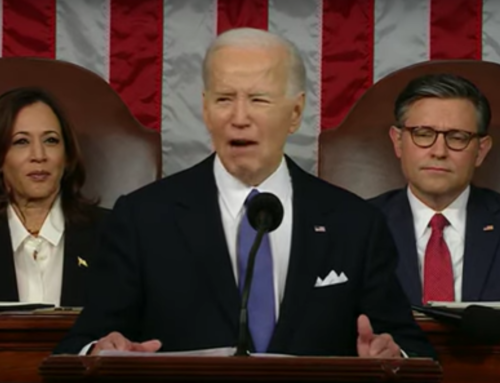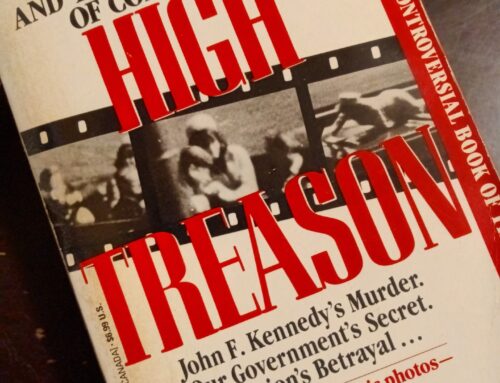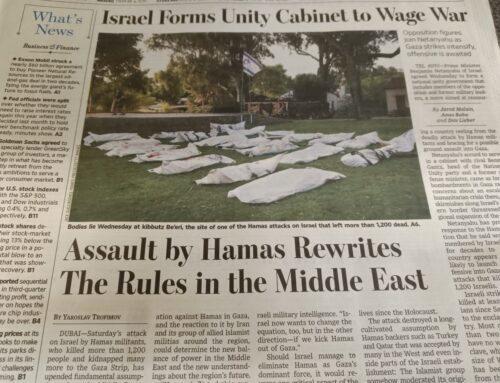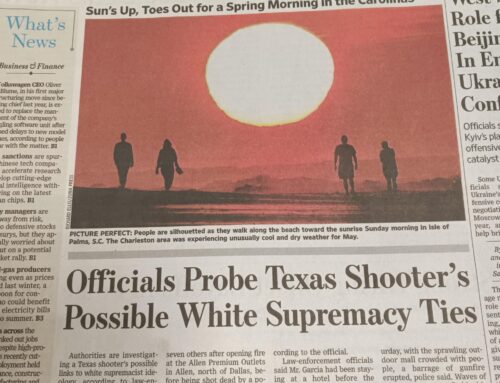“I am a friend to righteous government, to a government founded upon the principles of reason and justice; but I glory in publicly avowing my eternal enmity to tyranny. Is the present system, which the British administration have adopted for the government of the colonies, a righteous government – or is it tyranny?” – John Hancock, March 5, 1774
April 19th, known in the United States as Patriots Day; the anniversary of the skirmish at Lexington Green and battle at Concord Bridge – what is considered the opening salvo of the Revolutionary War.
In 1764 the British Parliament began enactment of a series of legislative decrees designed to leech tax revenue from the American colonies. The debt from the 7-Years-War left the Crown desperate for money, and thus turned its sights on the pockets of the colonial citizenry.
The colonies considered themselves somewhat autonomous; generations deep in their own culture and individualistic spirit. The idea of a direct tax was viewed by many as simple robbery, since not a single shilling would be used to improve colonial life – the revenue all sent directly to the King’s coffers.
The new taxes, referred to as The Townshend Acts, were the brainchild of Charles Townshend, “Chancellor of the Exchequer”, better known as Secretary of His Majesty’s Treasury. The Townshend Acts were comprised of 5 (4 with effect) separate taxation and commerce laws.
Sugar Act of 1764 was the first direct tax ever levied on the colonies, and was met with well-deserved disdain. The first cries of “No taxation without representation!” were heard as a result. And, in response, a portion of the funds was funneled by the English into salaries of colonial Judges and Governors in an attempt to buy loyalty and keep the angry colonists at bay.
1765 saw The Stamp Act. It was a complete failure and quickly repealed. But, it added to the growing anger as colonists contested the authority of Parliament to pass it in the first place. In answer, Parliament passed The Declaratory Act, which stated that they had the right to legislate the colonies “in all cases whatsoever.” An insulting parental “because I said so.” to those Parliament considered petulant “children” across the Atlantic.
Next came The Revenue Act of 1767. Townshend concluded that since the objection to the Stamp and Sugar Acts was direct/internal taxation, an import (or “external”) tax would be met with less resistance. So, he levied taxes on the importation of tea, paper, glass, lead, and paint – all products the colonies were required (by law) to import from Great Britain. An addendum to the Revenue Act was an expansion of the Writs of Assistance, otherwise known a search warrants; Parliament giving customs agents broader power to search businesses and private homes for smuggled goods.
1767 also saw the passage of The Commissioners of Customs Act, establishing a Board of Custom in Boston. The customs agents were arrogantly corrupt and proceeded to cause turmoil at a completely new level in the colonies. Merchants and shippers we’re constantly shaken down for payoffs and routinely accused of “possessing contraband”, resulting in confiscation (theft) of cargo, and even entire ships!
Complaints resulted in passage of The Vice Admiralty Court Act in 1768 (passed without Townshend), establishing courts where official complaints could be lodged – of course, it amounted to jury-less kangaroo courts, which consistently ruled in favor of the Crown.
Also in 1765, New York refused compliance with The Quartering Act – a law requiring the colonies to provide food and shelter to British soldiers. Townshend penned The New York Restraining Act as punishment, but New York grudgingly complied before it could be implemented.
Townshend died September 4, 1767, not living to see the full effect of his heavy-handed actions.
The Colonial economy was in shambles, but complaints and petitions to England fell on deaf ears. The only indication anyone in Parliament was paying attention was the arrival of the 50-gun ship HMS Romney to Boston harbor. She anchored in May of 1768, her cannon pointing at the city. A not so subtle message to the residents.
June 10, 1768, John Hancock’s ship Liberty was sized and he charged with smuggling. This, combined with the Captain of the Romney impressing (kidnapping for labor) local sailors, resulted in a riot in Boston.
General Gage, North American Commander of British Forces, soon arrived with four regiments and occupied Boston. The soldiers were quartered in the homes of residents and fed by the same, creating more anger towards Britain. Soon, with John Adams acting as his lawyer, the case was dropped against Hancock, and his ship returned – An obvious political move by the Crown which temporarily sedated the mood.
Tensions flared again on February 22, 1770, when Christopher Seider, a Boston teenager, was killed by a customs agent. Outrage came to a head on March 5, 1770 when British troops opened fire on protesting citizens, killing 5 and wounding 4. The event, known as The Boston Massacre, occurred outside the Customs Board office; ordered by Custom Board officials. Immediately afterwards British troops withdrew from Boston to Castle Green.
The events in Boston were unbeknownst to Parliament, who happened to repeal the majority of the Townshend Act taxes on the same day. All but the tax on tea, which English Prime Minister Lord North argued should be left in place as a reminder to the colonies who was in charge. Parliament agreed. And with the Custom Board, etc., left in full force, little changed.
In an attempt to save the faltering British East-India Company, Parliament passed The Tea Act of 1773, allowing the importer to ship tea directly to the colonies duty-free, as well as granting a monopoly on sales. The colonies were given no choice but to buy East-India tea, of course with the attached Townshend Tax.
Having none of it, the colonists resisted and forbid English ships from offloading in American harbors. Then, on December 16, 1773, a patriot group calling themselves The Sons of Liberty boarded English ships anchored in Boston and threw the cargoes overboard – The event known now as The Boston Tea Party.
Parliament responded in 1774 with 3 new totalitarian laws they labeled with unusual honesty as: ‘The Coercive Acts’. (The colonists referring to them as ‘The Intolerable Acts‘)
They were:
1 – The Boston Port Act, which closed off Boston Harbor until the British East-India Company was repaid for their loss.
2 – The Massachusetts Government Act, which seized direct control of all offices of the Massachusetts government.
3 – The Administration of Justice Act, which allowed for any Royal Officials accused of crimes in a colonial court to be extradited to England for a “fair trial.”
These were the final nails in the coffin of British/American relations.
From September 5 to October 26, 1774, the First Continental Congress meets in Philadelphia and petitions King George III, to no avail. The representatives of the 13 Colonies also formed a pact to boycott British goods.
At the same time, patriots in Massachusetts, ignoring the British seizure of the colonial government, formed The Massachusetts Provincial Congress, and direct citizens to form militias in anticipation of British hostilities.
In February of 1775, Britain declared Massachusetts to be in an open state of rebellion.
On April 14, 1775, 700 Red Coats were secretly dispatched by General Gage under the command of Lt. Col. Francis Smith to seize the cannon, powder, shot, and supplies of the rebels at Concord, and to arrest Samuel Adams and John Hancock. The rebels caught wind of the scheme and relocated the majority of their stores to alternate locations.
On the evening of April 18, Paul Revere and William Dawes ride through the night alerting militia members of the impending raid. The militias muster, and a small contingent sit in wait at Lexington green.
The first shots were fired at daybreak in Lexington on April 19, 1775. The Militia, outnumbered, fell back. At 11am, 400 Militia engaged 100 British at North Bridge in Concord, this time the British fell back, and moved to join up with reinforcements, but by then the hornet’s nest had been stirred. The retreat continued all the way back to Charlestown, the British under constant fire from American Riflemen.
One Patriot, 78-year-old Samuel Whittemore, was working in his field where he spotted an approaching British relief BRIGADE. He took up an ambush position behind a stone wall and fired on the soldiers, killing one. He then drew his pistols (plural), killed another, and mortally wounded a second. By then the British reached his position, and with all three guns empty, he drew his sword and charged!
He was shot in the face, bayoneted multiple times, and left for dead.
Other colonists found him bleeding profusely while struggling to reload his musket to rejoin the fight. He was taken to a nearby doctor who declared the wounds mortal and his chance of survival hopeless.
Whittemore recovered, dying of natural causes at the age of 96.
Comment:
Those who came before us were far less tolerant of tyranny, and far more willing to fight for their liberty. At one time there was nothing on the planet more deadly than an American with a properly zeroed rifle. Today, few possess the skills. Even fewer possess the will.
A free nation requires a citizenry of Samuel Whittemores.
“A militia when properly formed are in fact the people themselves… and include all men capable of bearing arms. . . To preserve liberty it is essential that the whole body of people always possess arms.” – Richard Henry Lee, Senator from Virginia to the First Continental Congress, signer of the Declaration of Independence






[…] April 17, 1775 […]
[…] April 19th, known in the United States as Patriots Day […]